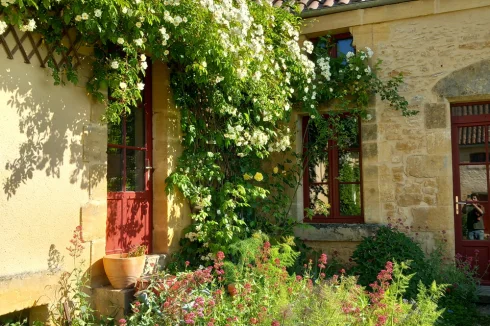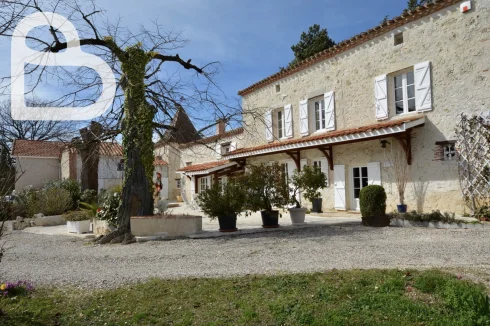Covid-19 in France - News Digest
Friday 03 April 2020
A summary of the main Covid-19 developments in France over the past month.
Outbreak
- The number of confirmed infected persons as of 2nd April was 59,105, with 26,246 hospitalised, 6,399 in intensive care, a total of 4,503 hospital deaths, and 12,428 recovered and discharged.
- The vast majority of hospitalisations are located in the Ile-de-France (10,273) and the Grand Est (4,657) regions and to a lesser extent in Auvergne Rhone Alpes (2,706) and Provence Cote d’Azur (1,492). The lowest number of hospitalisations is in Brittany (391).
- In order to relieve pressure on hospitals in the North patients have been transferred to hospitals elsewhere in France and to neighbouring countries. The measure is very mediatic but has been widely criticised due to the staffing resources consumed and the risk to patients.
- As in most other countries, the actual number of infections is considerably higher, due to the limited amount of testing carried out in France. The number of deaths is also only those who have died in a hospital.The government estimate there have been around 800 Covid-19 related deaths in elderly care homes.
- After a slow start, over 30,000 swab tests a day are now being carried out, to those presenting respiratory problems, who are chronically ill, or who are pregnant, as well as to medical professionals. The tests are being carried out in hospitals, ambulances or in people’s homes, with drive-through test centres being set up. The plans are to increase the number of tests to 50,000 a day by the end of the month.
- The Minister of Health has stated that quick finger blood tests, to establish whether a person is immune, will be rolled out in the coming weeks.
- As elsewhere, medical professionals have expressed concern about the lack of suitable equipment. A scheduled delivery of masks from China on the tarmac at Shanghai airport was reportedly hijacked in a cash deal done by the USA!
- The government have put together a private sector consortium to produce essential health equipment (notably masks and respirators) with the aim of making the country completely self-sufficient by the end of this year.
Confinement
- Since the end of February, a progressive lockdown of the country has been taking place, culminating on 16th March with a complete confinement of the population, until 13th April at the earliest.
- Essential businesses are authorised to remain open, although many smaller ones have opted to close. The list of those ordered to be closed and those allowed to remain open can be found at Décret n° 2020-293 du 23 mars 2020.
- Nevertheless, many employees of such businesses have taken it into their own hands to stay away from work, using their right of withdrawal enshrined in law.
- Anyone seeking to go out for exceptional reasons must complete a declaration 'on oath' stating the purpose, on pain of a fine of €135. There is strict enforcement by police and gendarmes, with roadside checks that are widespread. Six million controls have taken place and 360,000 fines imposed. There has also been reports of fake gendarmes imposing on the spot fines and demanding immediate payment.
- Government scientific advisors have recommended six weeks of confinement. The Prime Minister has stated any relaxation will be gradual, made by geographic area, and other factors such as age, and subject to community testing. However, with a vaccine perhaps not available for 12 to 18 months, many are likely to want to stay at home.
- The Minister of Interior has stated that there will be no relaxation for Easter, and that road blocks will be put in place.
- Despite the confinement, to most people’s bewilderment, the government went ahead with the first round of local elections on 15th March. The second round has been suspended.
Public Services
- Around 80% of post offices are closed and postal deliveries have been reduced to three days a week, Wednesday to Friday. More information at French Post Office.
- The dates for submission of the 2020 income tax return has been extended. Tax offices are shut. Details at French Tax Return Dates.
- Around two-thirds of tax officials are on enforced absence, leading the government to suspend all tax and social investigations and recovery procedures.
- There is speculation that the abolition of the taxe d’habitation for the remaining 20% of the population who remain liable may be suspended to bolster public finances.
- Doctors surgeries remain open, but patients need in the first instance to seek a telephone/video consultation with their doctor. If they are unable to assist, you can use any other doctor, and it will be fully reimbursable. The website Doctorlib can be used to find a doctor and make an appointment. Prescriptions can be sent by mail to you, or to your pharmacist.
- Prescription renewals can be obtained directly from a pharmacist, without the need to visit your GP, even though the prescription may have expired.
- Dentists and opticians are closed except for emergency treatment. If you need urgent dental treatment advice is available at Urgence-dentaire and for opticians at Urgence-opticien.
- Local health authority offices are closed to the public, although it is possible to contact them through your on-line account on 'Ameli', the health website. If you do not have an on-line account, you can open one using your social security number.
- Cars and light-vehicles that require an MOT (control technique) during the period of confinement have been granted a reprieve of three months, although MOT test centres are permitted to remain open.
- Residence permits and visas to live in France that are due to expire have all been extended by three months.
- With all schools closed, primary and secondary school examinations have all been cancelled, and assessment will now take place by evaluation of pupil coursework.
Commercial Life
- Nearly 400,000 companies, employing around 4 million employees have made application for short time working benefit (chômage partiel) which offers them 70% of their gross salary up to a maximum of €7,000, with those on the minimum working wage receiving 100%.
- Supermarkets and food stores remain open in France, most with heaving shelves of produce, although there have been shortages of some items, eg toiletries, eggs, flour and fresh fish.
- Many DIY stores are also offering click and collect services and many gardening shops are also open on the pretext that they sell animal feed.
- In anticipation of a shortage of labour for the food harvests, the government have made a call for help, to which around 200,000 people have responded.
- Lorry driver trade unions have protested at the lack of safety available for their members, although there are few signs that deliveries are being affected, excepting those from outside of France.
- All open-air markets were ordered to be closed, although food markets have been allowed to stay open, subject to safety measures being put in place. Many markets outside of Paris and the main cities remain open, and more are being reopened as consents are being obtained from the prefets. The order to close the markets was met with incredulity by many experts and anger by shoppers.
- The government have stated that they will not hesitate to nationalise key businesses deemed of strategic importance. Air France and Renault are high on the list of potential candidates, although with complications for the former due to the KLM tie-up.
- Not all businesses have been suffering in the crisis, and one that has been booming is, not surprisingly, food delivery services.
- The government have stated that companies that pay dividends to their shareholders will not be able to also benefit from State aid during the crisis.
Property
- As estate agents and notaires have closed their offices, the property market is at a standstill. Most transactions in progress have been delayed.
- Removal firms have been banned from operating, apart for emergency reasons, eg, sanitary.
- Analysts, in the main, consider that once the outbreak has passed property prices will fall, in the main due to higher levels of unemployment and lower incomes.
- Unlike business leases, residential rents have not been suspended.
- Neither have the government agreed to a mortgage holiday for homeowners.
- The period when tenants cannot be evicted extended to 31st May 2020; the same rule has been applied against disconnection by utility companies.
- The validity period of existing local plans has been extended to 31st Dec 2020.
Related Reading:
Thank you for showing an interest in our News section.
Our News section is no longer being published although our catalogue of articles remains in place.
If you found our News useful, please have a look at France Insider, our subscription based News service with in-depth analysis, or our authoritative Guides to France.
If you require advice and assistance with the purchase of French property and moving to France, then take a look at the France Insider Property Clinic.





